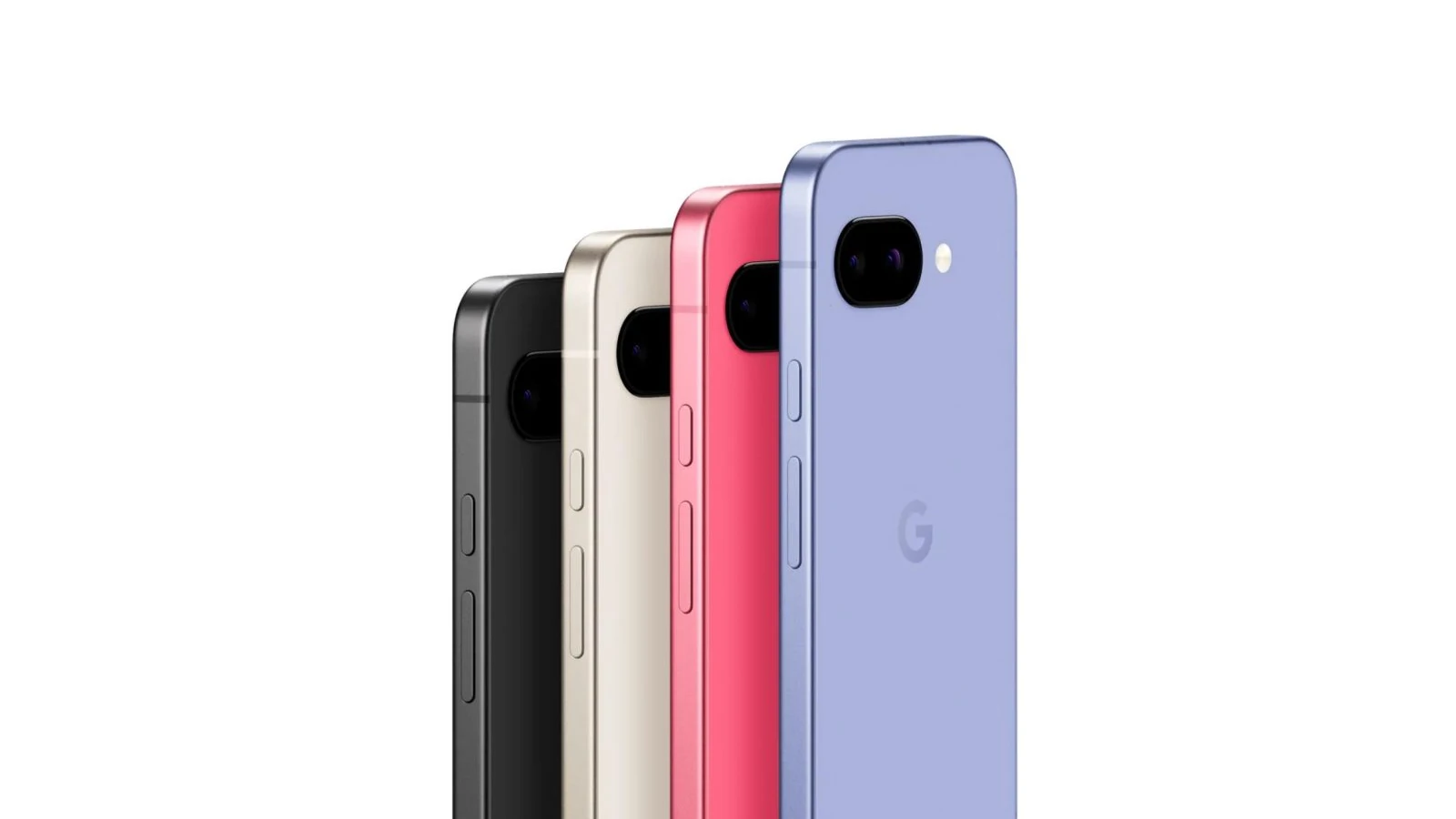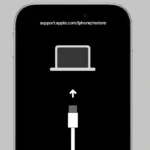Google’s new budget-friendly Pixel 9a is here, but beneath its appealing $499 price tag lies a compromise that may disappoint AI enthusiasts. Despite Google’s aggressive marketing of Pixel devices as AI-first smartphones, the 9a’s modest 8GB of RAM simply isn’t enough to handle the full suite of on-device Gemini AI features. Instead, the Pixel 9a runs a significantly scaled-back version of Gemini Nano—an “extra extra small” (XXS) model—that strips away some of the headline capabilities available on its more powerful siblings, the Pixel 9 and Pixel 9 Pro.
Gemini Nano… But Smaller
Gemini Nano is Google’s on-device AI model, intended to handle everything from summarizing conversations to making screenshots searchable—all without needing a connection to the cloud. On the Pixel 9 and Pixel 9 Pro, which boast 12GB and 16GB of RAM respectively, Gemini Nano runs in its more capable “XS” configuration. These phones can process images, audio, and text in real-time, unlocking features like:
- Pixel Screenshots: AI that organizes, searches, and provides context to your screenshots.
- Call Summaries: Automatic generation of concise call notes.
- AI-Powered Suggestions: Smarter, more contextual replies and actions based on app activity.
But on the Pixel 9a? The story changes.

Due to the hardware limitations—specifically, the lower RAM—the Pixel 9a is only capable of running Gemini Nano XXS. This smaller model lacks many of the AI processing abilities found in the larger version. Features like Pixel Screenshots and Call Summaries are missing altogether because the reduced AI model can’t handle image or audio processing on-device. What remains is the ability to summarize voice recordings via the Recorder app, but even that is a slimmed-down experience compared to its flagship counterparts.
Why 8GB of RAM Just Doesn’t Cut It Anymore
In 2025, 8GB of RAM feels like yesterday’s spec—especially for a phone that’s meant to showcase Google’s AI advancements. As AI models become more complex and data-hungry, the need for additional RAM isn’t just about performance, but about functionality.
Competing AI-driven phones like the Samsung Galaxy S24 series offer higher RAM options and feature AI integrations that aren’t pared back. Even mid-range devices from Chinese brands such as Xiaomi and Honor are starting to push 12GB as a baseline for their AI-centric handsets.
The decision to limit the Pixel 9a to 8GB of RAM has led some industry commentators to call the move shortsighted. As TechRadar bluntly put it, “It’s hard to sell the future of AI on a phone that feels stuck in the past.” Google’s choice could alienate users who want more future-proofed devices without paying flagship prices.
Is Pixel 9a Still Worth It?
Despite the AI limitations, the Pixel 9a still brings plenty of value to the table. It features Google’s Tensor G4 chip, the same found in the Pixel 9 series, providing solid performance for everyday tasks. The camera system continues to impress, maintaining Google’s reputation for top-tier photography even in its budget lineup.
But if you’re someone drawn to the Pixel 9a because of Google’s AI promises, it’s important to manage expectations. The Gemini Nano XXS model works, but it’s a stripped-down experience. If full AI capabilities are a priority, potential buyers might want to stretch their budget toward the Pixel 9 or 9 Pro—or wait to see if Google releases another mid-tier option with more RAM.
The Bigger Picture for Google’s AI Strategy
The Pixel 9a’s limitations reveal a tension in Google’s AI strategy. On one hand, Google wants AI to be a key differentiator across its entire Pixel lineup. On the other, cutting corners on RAM in its budget models undermines that promise. As the competition heats up—with Apple reportedly planning AI-driven features for the iPhone 16 series and Samsung pushing its Galaxy AI across devices—Google’s challenge is clear: either find a way to bring its full AI experience to affordable devices or risk falling behind.
For now, the Pixel 9a is a great phone at a great price—but it may leave AI enthusiasts wanting more.
Key Takeaways
- The Pixel 9a runs a restricted version of Gemini Nano because it only has 8GB of RAM instead of the 12GB found in flagship Pixels.
- This RAM limitation means the 9a offers fewer on-device AI capabilities than its more expensive siblings.
- Consumers expecting full AI performance may need to consider the main Pixel 9 series or other phones with more RAM.
Understanding RAM in Smartphones
RAM (Random Access Memory) plays a crucial role in smartphone performance, especially for running advanced features like AI. The amount of RAM directly affects how many apps and processes a phone can handle at once.
Role of RAM in Device Performance
RAM is the working memory where your phone keeps apps and data it’s actively using. Think of it like a desk – the bigger your desk, the more papers you can work with at once. When RAM fills up, phones must close background apps or limit features.
For AI functions like Google’s Gemini, RAM is especially important. AI models need space to run their calculations. With limited RAM, phones can’t process complex AI tasks efficiently.
The Pixel 9a comes with 8GB of RAM. While this may seem adequate for basic tasks, modern AI features demand more memory to function properly.
Without enough RAM, phones may:
- Run slower when multitasking
- Close background apps more frequently
- Limit AI capabilities
- Struggle with future updates
Comparison to Pixel 9 and Pixel 9 Pro Models
The Pixel 9a’s 8GB of RAM falls short compared to its siblings in the Pixel 9 series. This memory limitation has forced Google to create a downgraded version of Gemini Nano for the 9a.
The standard Pixel 9 and Pixel 9 Pro come with more RAM, allowing them to run the Gemini Nano XS model. In contrast, the 9a must use a smaller Gemini Nano XXS version with reduced capabilities.
This creates a noticeable difference in AI functions:
- Pixel 9/Pro: Full Gemini features
- Pixel 9a: Limited Gemini capabilities
Users considering the Pixel 9a should understand these limitations. Some AI features available on other Pixel 9 models won’t work the same way or at all on the 9a due to its RAM constraints.
Google Gemini AI’s Impact on RAM Usage
Google’s Gemini AI requires significant memory resources to function properly on smartphones. The memory demands vary based on the model size and complexity of tasks being processed.
How Gemini AI Utilizes RAM
Gemini AI works by loading large language models directly into a phone’s RAM. The standard Gemini Nano model needs dedicated memory to run smoothly. Google’s flagship Pixel phones come with 12GB of RAM, which allows them to set aside specific memory just for AI tasks.
On these devices, Gemini can handle:
- Real-time text summaries
- Smart replies
- Photo editing with AI
- Language translation
The Gemini system keeps parts of the AI model loaded in RAM at all times. This means less waiting for users but more strain on the phone’s memory resources.
Challenges for Lower RAM Devices
The Pixel 9a faces significant limitations with only 8GB of RAM. Google had to create an “extra extra small” (XXS) version of Gemini Nano specifically for this device. This smaller model offers fewer AI features than its bigger siblings.
With limited RAM, the Pixel 9a struggles with:
- Reduced AI capabilities: Some advanced features are completely unavailable
- Performance issues: Running AI alongside other apps can cause slowdowns
- Battery drain: The system works harder to manage limited resources
The RAM shortage creates a notable gap between the Pixel 9a and other models in the lineup. While the phone costs less, users miss out on the full AI experience that Google heavily promotes.
Pixel 9a Specifications and Performance
The Google Pixel 9a comes with several hardware limitations that directly impact its AI capabilities, particularly when running Google’s Gemini AI technology. Memory constraints force the device to use a scaled-down version of Gemini’s on-device AI features.
Pixel 9a’s Hardware Overview
The Pixel 9a continues Google’s tradition of offering mid-range alternatives to its flagship phones. It features the same Tensor G4 chip found in the premium Pixel 9 models, which supports AI processing capabilities. The phone sports an OLED panel with good brightness levels and color accuracy.
Battery life remains competitive, lasting through a full day of moderate use. The device maintains a relatively compact form factor, making it comfortable to hold and use with one hand.
Camera performance follows Google’s reputation for excellent computational photography, though with fewer sensors than premium models. The main drawback appears in its memory configuration, which affects the phone’s AI capabilities.
Analysis of Pixel 9a’s Memory Capacity
The Pixel 9a ships with only 8GB of RAM, unchanged from last year’s Pixel 8a model. This memory limitation has forced Google to implement a downgraded version of Gemini Nano on the device.
While flagship Pixel 9 models standardized on 12GB of RAM partly to accommodate Gemini Nano’s memory requirements, the 9a runs what’s called “Gemini Nano XXS” (extra extra small) instead of the XS version found on other Pixel 9 devices.
This RAM limitation restricts some on-device AI capabilities. The Gemini Nano XXS model offers fewer features and potentially slower AI processing compared to its siblings with more RAM. Users wanting the full Gemini experience may need to consider higher-end Pixel models.
Pixel 9a Compatibility with Android Versions
The Pixel 9a ships with Android 14 out of the box and is fully upgradable to Android 15. Google has promised at least three years of major OS updates for the device, ensuring long-term software support.
Android 15 brings enhanced AI capabilities that work with the phone’s Gemini Nano XXS implementation. The operating system is optimized to run efficiently within the 8GB RAM constraint, though some advanced features require online processing.
The Pixel 9a receives Google’s monthly security updates promptly, keeping the device secure. The clean Android experience remains a selling point, with the Pixel launcher providing a smooth interface despite memory limitations. Some AI features work better when connected to Google’s cloud services rather than relying solely on on-device processing.
Upgrades and Alternatives to Pixel 9a
If you want better AI performance than what the Pixel 9a offers, several options provide more RAM and enhanced capabilities for running Gemini AI without limitations.
Advantages of Pixel 9 Pro Series
The Pixel 9 Pro and Pixel 9 Pro XL stand out as direct upgrades for those disappointed by the limited Gemini AI experience on the 9a. Both phones come with 12GB of RAM, which fully supports the standard Gemini Nano model without compromises.
The Tensor G4 processor in these devices is optimized for AI tasks and handles on-device processing more efficiently. This means features like:
- Seamless real-time translation
- Full-featured Magic Editor
- Complete Circle to Search functionality
- Better multitasking performance
The camera system also gets significant upgrades, with an improved ultra-wide camera and enhanced night photography capabilities. Though priced higher than the 9a, the Pro series offers a future-proof investment for AI enthusiasts.
Considering Foldable Phones: Pixel 9 Pro Fold
The Pixel 9 Pro Fold represents Google’s premium offering with the most RAM (16GB) in their lineup. This extra memory makes it ideal for running complex AI tasks without slowdowns.
The foldable design provides unique advantages for Gemini AI:
- Split-screen multitasking with AI assistants
- Larger canvas for viewing AI-generated content
- Better experience with AI photo editing tools
While substantially more expensive than the 9a, the Fold’s combination of screen space and processing power creates an unmatched environment for AI applications. The device can run multiple AI features simultaneously without the RAM limitations that force the 9a to use an “extra extra small” version of Gemini.
Comparison with Other Brands
Looking beyond Google’s ecosystem offers several compelling alternatives with better AI performance than the Pixel 9a.
| Phone Model | RAM | AI Capabilities |
|---|---|---|
| Samsung S24 | 12GB | Galaxy AI features |
| iPhone 16e | 8GB | More efficient memory usage |
| Pixel 9 Pro | 12GB | Full Gemini Nano |
The Samsung Galaxy S24 provides 12GB RAM and impressive AI features through Galaxy AI. Its processor handles on-device AI more efficiently than the 8GB RAM Pixel 9a.
Even the iPhone 16e with 8GB RAM offers better AI performance due to Apple’s more efficient memory management and optimization. The tight integration between hardware and software helps overcome the RAM limitations that plague the Pixel 9a.
For those who prefer Google’s ecosystem but need better AI performance, the regular Pixel 9 hits a sweet spot with more RAM than the 9a at a lower price than the Pro models.
Frequently Asked Questions
The Pixel 9a’s limited RAM affects how Gemini AI runs on the device, causing several performance issues and limitations compared to other Pixel models.
What are the minimum RAM requirements for Gemini AI on Pixel devices?
Gemini AI needs at least 8GB of RAM to function, but runs better with more memory. The standard Pixel 9 models come with 12GB of RAM, which Google set as the baseline for optimal Gemini Nano performance.
The Pixel 9a contains only 8GB of RAM, the minimum required to run Gemini at all. This limited memory forces the device to use the “Gemini Nano XXS” (extra-extra-small) model instead of the “XS” model found on other Pixel 9 devices.
How does the RAM capacity of Pixel 9a affect the performance of Gemini AI applications?
The 8GB RAM in the Pixel 9a limits on-device AI capabilities significantly. Users experience slower response times when using Gemini features.
The smaller Gemini Nano XXS model has reduced capabilities compared to the XS version on other Pixel phones. Features like real-time translations, complex text generation, and some photo editing tools work with less precision or speed.
Some advanced AI tasks may need to be processed in the cloud rather than on-device, using more data and requiring internet connectivity.
Can the RAM on a Pixel 9a be upgraded to better support Gemini AI software?
No, the RAM in the Pixel 9a cannot be upgraded. The memory is soldered directly to the motherboard and is not user-replaceable.
Google designed the 9a as a mid-range device with fixed specifications. Users wanting better Gemini AI performance would need to purchase a higher-end Pixel model with more RAM.
Are there any optimization strategies for running Gemini AI on a Pixel 9a with limited RAM?
Closing background apps before using Gemini features helps free up available RAM. The phone can dedicate more resources to AI tasks when fewer apps are running simultaneously.
Regularly restarting the device clears cached data and temporary files that might be using memory. Installing system updates promptly ensures you have the latest optimizations Google has developed for running Gemini on limited hardware.
Setting apps to “restricted” battery usage in settings can prevent them from consuming resources in the background.
What are the consequences of running Gemini AI on a Pixel 9a with insufficient RAM?
The downgraded Gemini Nano XXS model on the Pixel 9a produces less accurate and detailed responses compared to the XS version on other Pixel 9 phones.
Users may experience app crashes or system slowdowns when trying to use memory-intensive AI features. The phone might become warm during extended AI processing tasks as it struggles with limited resources.
Battery life can also suffer, as the system works harder to manage memory constraints while running AI processes.
Does Google offer any solutions for Pixel 9a users facing performance issues with Gemini AI due to RAM limitations?
Google has implemented some software optimizations specifically for the Pixel 9a. These help the device run Gemini Nano XXS more efficiently within its RAM constraints.
Cloud-based alternatives are available for more intensive AI tasks. Google added Gemini Nano to the Pixel 8 (which also has 8GB RAM) after initial release, showing they continue working on optimizations for devices with limited memory.
Google provides clear documentation about which AI features work fully on the 9a and which have limitations, helping users set appropriate expectations.







